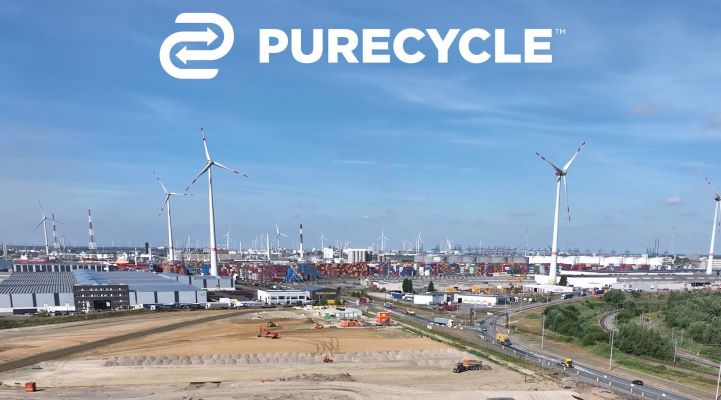Third-party LCA shows future European facility is expected to release fewer carbon emissions

PureCycle Technologies released new data from a third-party baseline Life Cycle Assessment (LCA) study that shows the future polypropylene waste purification plant at the port of Antwerp in Belgium is expected to release fewer carbon emissions, use less energy and rely upon less fossil resources than global virgin plastic production.
The study was conducted by the well-known independent assurance and risk management expert, DNV, following the ISO-14040/44 LCA-framework.
Based on the estimates from PureCycle’s flagship facility in Ironton, Ohio and the energy grid in Belgium, the study found that the port of Antwerp facility will consume 86% less energy than global virgin PP production. Assessment data also indicates that the European facility is expected to reduce green-house gas emissions by 61% and reduce fossil-based resource usage by 64% when compared to virgin plastic.
“DNV’s LCA study shows that PureCycle’s future Antwerp plant, after incorporating the learnings from Ironton, should be much more carbon efficient than virgin plastic production,” said PureCycle’s VP of European Operations Wiebe Schipper. “What I also like about DNV’s work is that it identifies focus areas for us to further enhance the carbon, energy and resource efficiency of our Antwerp operations.”
PureCycle CEO Dustin Olson added, “The results of this LCA study are highly encouraging for the ongoing optimization of our recycling facilities. Having results indicating we’re continuously making improvements to the sustainability of our operations demonstrates PureCycle’s commitment to bringing a circular plastic-to-plastic solution to the world in a thoughtful way that minimizes our environmental impact.”
Subscribe to our newsletter & stay updated.